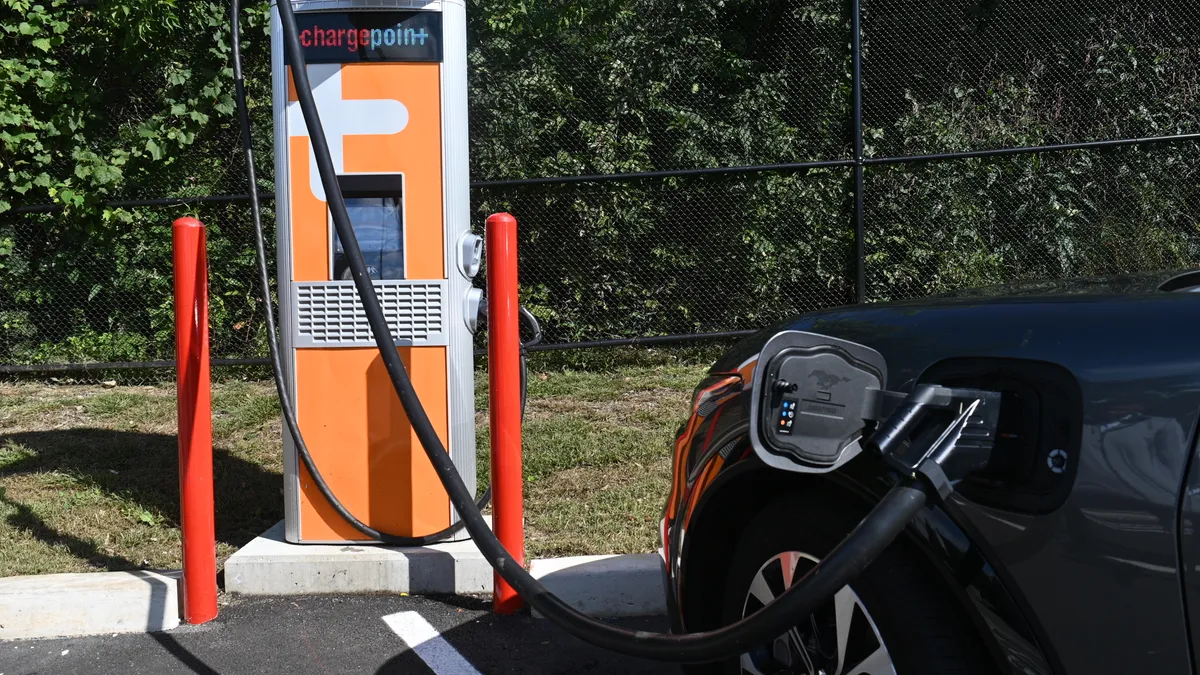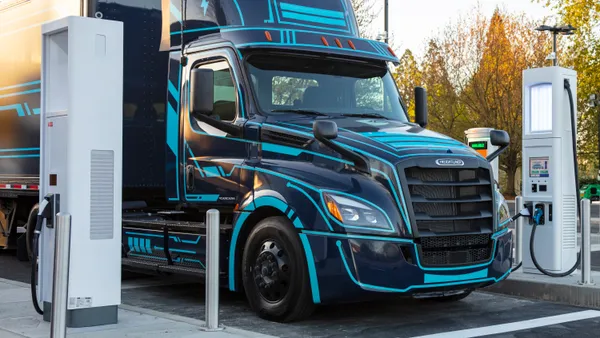Shares of electric vehicle charging company ChargePoint slid almost 18% on Thursday after the company reported lower second quarter revenues and announced it would reduce its workforce by 15%.
The majority of the headcount reduction will be in sales and marketing, ChargePoint President and CEO Rick Wilmer said during an earnings call with analysts after the market closed on Wednesday.
“This is an offensive move, these reductions will enable us to move faster by streamlining operations. For example, we are flattening the sales and marketing organization, increasing speed and focus, and maximizing resources directly related to revenue generation,” Wilmer said.
Second quarter revenue came in around $109 million, within the company’s guidance range but down 28% from $150.5 million in the year-ago quarter and below analyst expectations. For the third quarter, ChargePoint said it expects revenue of $85 million to $95 million.
Second quarter revenue was held back by project delays in the company’s fleet business, Wilmer said.
“A number of large deals pushed due to external factors including delayed permitting, construction and switchgear delivery,” he said. “However, we do expect improvement in this area as we are on pace to double our fleet opportunities this year.”
EV sales growth has flattened in the last year. Battery-only EVs accounted for 7.1% of the U.S. light-duty vehicle market in the second quarter of this year, about the same share as a year ago, the U.S. Energy Information Administration said last month.
However, hybrid sales have seen strong growth, which Wilmer noted.
“Plug-in hybrid sales were up 59% in the first half of the year, underscoring the critical role of charging infrastructure, which is a huge win for ChargePoint,” he said. Overall, the CEO said he remains optimistic about the transition to electric transportation.
“Sales of passenger EV's have settled into a stable, predictable growth path, a clear sign of sustainable adoption,” Wilmer said. In the second quarter, auto manufacturers cut leasing prices to clear the way for 2025 models, he added.
“These aggressive price cuts triggered a surge, with sales jumping 23% over Q1 and climbing 11% year-over-year, putting many drivers behind the wheel of an electric vehicle for the first time,” Wilmer said. “When the 2025 models hit the market in the coming months, boasting superior specs and broader selection, EV momentum is only going to accelerate,” he said.
ChargePoint has also been turning to artificial intelligence to improve the performance of its charging stations.
“We're focused on making the charging experience as smooth as possible for drivers,” Wilmer said. “We have recently deployed AI technology to quickly diagnose and fix station issues. If the driver reports a hardware problem with our app, AI analyzes images to identify the issue, often without needing a site visit.”
The use of machine learning reduces station downtime “and ensures our stations are reliable, solving one of the biggest challenges in our industry,” he said.













